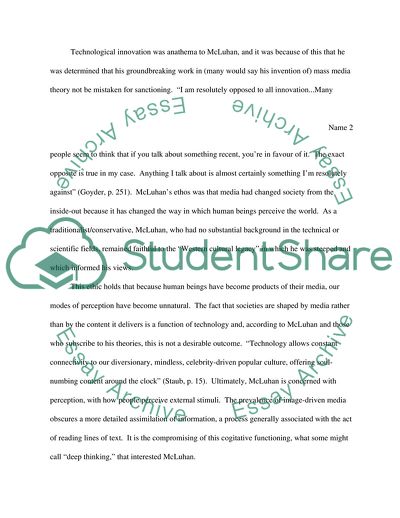Cite this document
(An End in Itself: McLuhan, Media, and the Innovation Aesthetic Essay, n.d.)
An End in Itself: McLuhan, Media, and the Innovation Aesthetic Essay. https://studentshare.org/culture/1768318-cultural-studies-essay
An End in Itself: McLuhan, Media, and the Innovation Aesthetic Essay. https://studentshare.org/culture/1768318-cultural-studies-essay
(An End in Itself: McLuhan, Media, and the Innovation Aesthetic Essay)
An End in Itself: McLuhan, Media, and the Innovation Aesthetic Essay. https://studentshare.org/culture/1768318-cultural-studies-essay.
An End in Itself: McLuhan, Media, and the Innovation Aesthetic Essay. https://studentshare.org/culture/1768318-cultural-studies-essay.
“An End in Itself: McLuhan, Media, and the Innovation Aesthetic Essay”. https://studentshare.org/culture/1768318-cultural-studies-essay.


